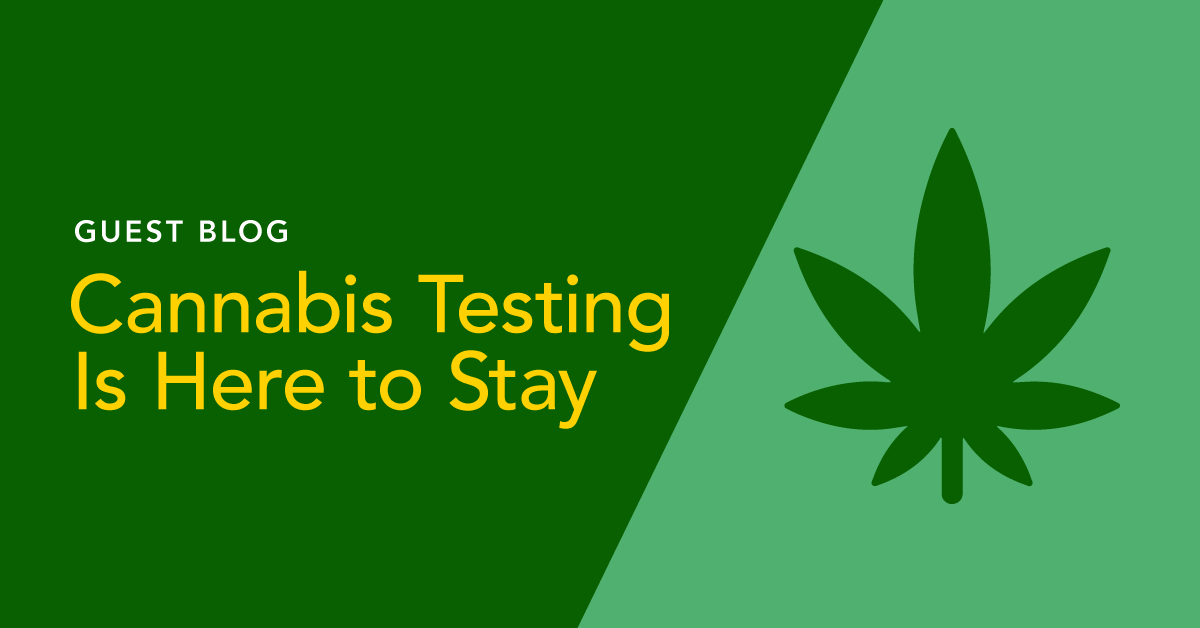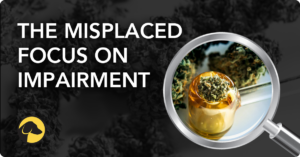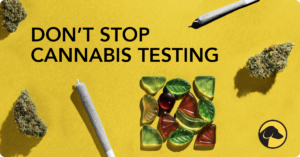
Think Twice Before Abandoning Cannabis Testing
As an HR Professional with over 30 years’ experience managing varied workforces with employees from law enforcement to DOT-regulated drivers, I view the purpose of a drug testing program as a tool to create and maintain a safe work environment for employees, customers, and the public. Drug testing is not a punitive vehicle to root out and punish employees who test positive.
ELIMINATING CANNABIS TESTING CAN LEAD TO COSTLY CONSEQUENCES
While it is tempting to just eliminate cannabis testing now that it is legal in many states, especially in today’s tight labor market, doing so is the easy way out. Recent media coverage may lead employers to believe that testing is no longer needed, when in fact very few employers have taken this step.1 But eliminating testing is ultimately the wrong choice – potentially leading to costly consequences down the line for employers and employees.
As any seasoned HR Professional knows, managing people is not an easy job. Employment policies must evolve as laws change. New employment policies must be developed to properly manage a workforce where cannabis use is permitted in some form. Developing a plan to address a situation in advance is always preferable to trying to do so on the fly when a problem arises.
EMPLOYERS NEED TO HAVE A BONA FIDE TESTING PROGRAM IN PLACE
The issue that employers should be concerned about amid continuing cannabis legalization is whether employees’ cannabis use could be causing impairment, not just cannabis use at some point in the past. Employers committed to providing safe work environments recognize the need to be able to identify recent cannabis use – which correlates with impairment – in the workplace.
Employers need to have a bona fide testing program in place to protect themselves from liability should an accident or injury occur, especially if the investigation proves that the employee involved had cannabis in their system. As is often said, the best offense is a good defense. By maintaining a drug testing policy that includes cannabis, an employer illustrates its commitment to maintaining a safe working environment. Regular random testing will solidify an employer’s commitment and provide it with some liability protection should an accident or injury occur, and an employee is proven to have used cannabis recently enough that it might have been a factor in the incident. It is impossible to eliminate accidents and injuries but holding regular random testing as well as testing of those employees who exhibit signs of impairment will go far in keeping employees and the public safe, as well as protecting an employer from negligent employment practices claims.
With cannabis legal either medically or recreationally in so many states, a vehicle to link cannabis use to likely impairment rather than just if an employee used cannabis within a few days, weeks, or months before the test is desperately needed in the workplace. This respects the right of the employee to utilize cannabis, protects the employer from liability and negligent employment claims, and helps to maintain that safe work environment everyone desires.
ABOUT THE AUTHOR
Christine M. Jensen is an HR Professional with over 30 years’ experience managing varied workforces with employees from law enforcement to DOT-regulated drivers. In addition, her experience has provided the opportunity to manage employees in five different labor unions from the Teamsters to law enforcement professionals. Ms. Jensen is currently the Site Administrator of the Pennsylvania CareerLink® Luzerne County. The CareerLink is the region’s largest employment and business services agency in Luzerne County. Prior to joining the Pennsylvania CareerLink, Ms. Jensen served the City of Wilkes-Barre as its Human Resources Director for 21 years.
Ms. Jensen has a Bachelor of Arts Degree from the Catholic University of America. She has maintained her Senior Professional in Human Resources (SPHR) certification since 1997 and is a SHRM Senior Certified Professional (SHRM-SCP).
This post was written by a guest blogger. Opinions expressed within the post are not necessarily those held by Hound Labs.
August 19, 2021
By CHRISTINE M. JENSEN
SPHR®, SHRM-SCP
Share












